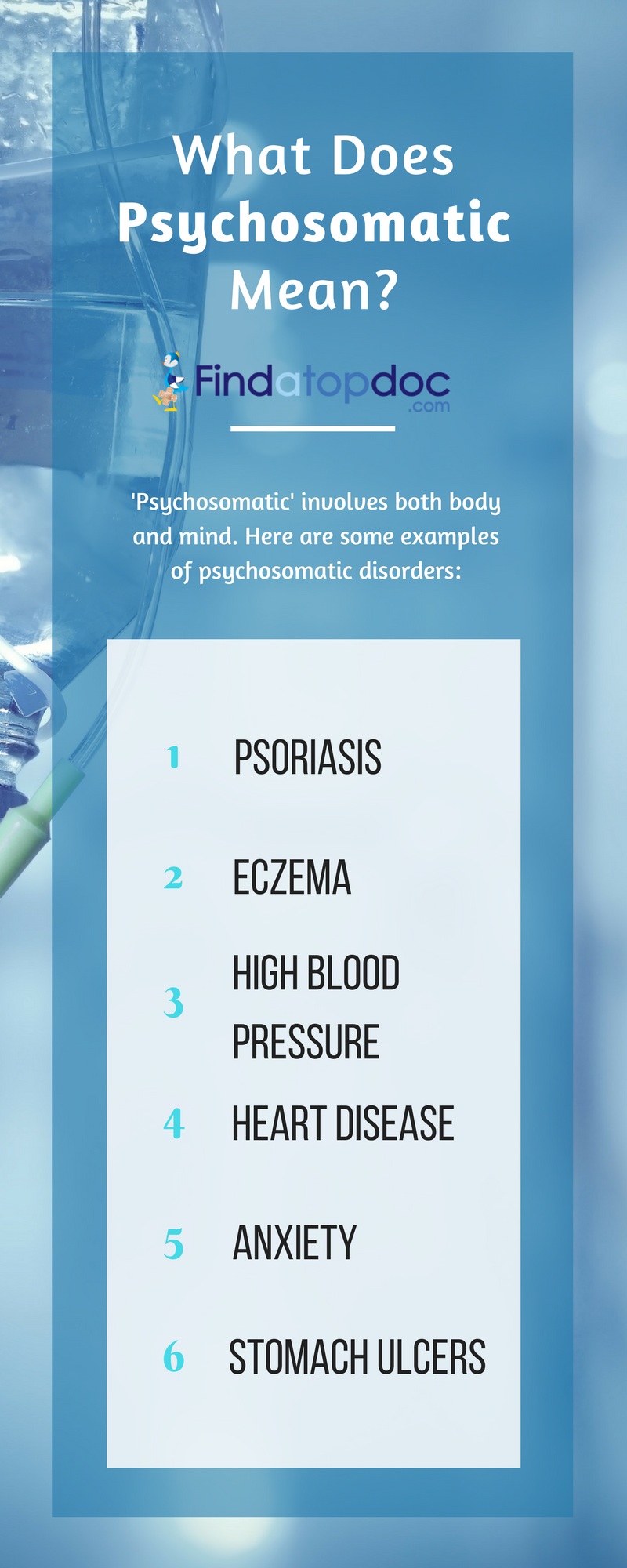
Source
Which diseases are psychosomatic?To an extent, most diseases are psychosomatic - including both mind and body. There is a mental aspect to every physical disease. How we react to disease and how we deal with disease vary greatly from person to person. For example, the rash of psoriasis may not bother some people very much. However, the rash covering the same parts of the body in someone else may make them feel depressed and, as a result, more ill.
TreatmentEach disease has its own treatment options. For physical diseases, physical treatments such as medication or operations are usually the most important. However, healthcare workers will usually try to treat a person as a whole and take into account mental and social factors which may be contributing to a disease. Therefore, treatments to ease stress, anxiety and depression may help if they are thought to be contributing to your physical disease.